From the Director 主任的話
We are in the second year of the fifth phase of the National Center for Theoretical Sciences (NCTS). During the past two years, many things have happened to the NCTS, especially to its Physics Division. Beginning in 2021, the Headquarters (HQ) of the Physics Division moved from National Tsing Hua University (NTHU) to National Taiwan University (NTU), and is now located on the third and fourth floors in the blend new Chee-Chun Leung Cosmology Hall on the NTU campus. In the first half of 2021, therefore, we were busy hiring administrative assistants, making floor planning for newly acquired space, refurbishing the offices, meeting and seminar rooms, constructing new NCTS Physics website. Thanks to the hard work of our administrative assistants and also the strong support from NTU, the Physics Division has been in full operation since the summer of 2021. Because the Mathematics Division also moved from the Astronomy-Mathematics Building on the NTU campus to the Cosmology Hall just a few months earlier, an unveiling ceremony was organized with distinguished guests from the Ministry of Science and Technology [MOST, renamed National Science and Technology Council (NSTC) in Aug. 2022] and NTU being invited to unveil the new site of the NCTS.
Second, in contrast to the fourth phase, the Physics Division set up four NCTS Hubs in Hsinchu and also southern part of Taiwan in order to increase the efficiency of the operation and to safeguard the valuable time of the members of theoretical physics community. After a town hall meeting and several negotiations as well as the consideration of the geographic distribution of the theoreticians in Taiwan, four universities, namely, NTHU and National Yang-Ming Chiao-Tung University (NYCU) in Hsinchu, National Cheng Kung University (NCKU) in Tainan and also National Sun Yat-sen University (NSYSU) in Kaohsiung were chosen to host the NCTS Hubs. The Hubs have their own secretary support and postdocs, and the NTU which holds the NCTS grant, transfers 40 % of the funding from the NSTC to the Hub-hosting universities to support the operation of the Hubs.
Thirdly, in the fifth phase, the focus of the NCTS Physics Division is to build and serve the internationally competitive teams called Thematic Groups (TGs), and each TG has a few center scientists and core members as well as postdocs. In Jan., 2021, eleven TGs were formed in four grand fields, namely, TG1: Quantum Information and Quantum Computing, TG2: High Energy Physics and Astrophysics, TG3: Condensed Matter and Materials Physics, and TG4: Interdisciplinary Research, were set up. TGs are responsible for almost all the academic activities of the Division and hence are crucial for its success. Currently, there are 30 Center Scientists (CSs) in the Division, who are outstanding scholars from various universities and institutions in Taiwan. In 2021, 19 postdocs worked in either the HQ or Hubs. In 2022, total 27 postdocs worked in the Division. Currently 19 postdocs (9 from Taiwan, and 10 from India, Japan, Philippines, Canada, Poland and Slovakia) work in either the HQ or Hubs.
In early 2021, the NCTS-Physics white paper on the opportunities and challenges of theoretical physics in the next decade was prepared and posted on the NCTS webpage. For most of the time in 2021, Taiwan government imposed restrict border control in order to stop the incoming of the COVID-19 pandemic and this resulted in almost no foreign visitors arriving in Taiwan. Nevertheless, 17 workshops and conferences as well as 6 schools either online or in-person and online hybrid, were organized. Although the number of activities did not significantly decrease, it is difficult to achieve the effect of physical meetings for physics seminars that emphasize creativity and brainstorming. Moreover, it is not easy to meet new physicists online, which is especially detrimental to young people who have just entered the field. In 2021, despite of the COVID-19 pandemic, our CSs and research staff published 108 papers in international journals including prestigious journals Nature and Physical Review Letters. Finally, our CSs and core members of TGs were recognized with various national and international awards. In particular, center scientist Yu-tin Huang (NTU) was awarded 2020 Achievement in Asia Award by the International Organization of Chinese Physicists and Astronomers (OCPA).
In 2022, 26 workshops and conferences as well as 12 schools and courses (either in-person or hybrid ones) have been held. The Division encourages academic exchanges and collaborations between different disciplines, between different institutions, and also with industrial R&D centers. For example, last September TG1 jointly organized "2022 AMO summer school” in Sun-Moon Lake resort. Members of TG1 collaborate with NTU-IBM Quantum Computing Center, NTHU Quantum Technology Center and Academia Sinica, and also with industrial R&D centers such as Hon Hai Research Institute. We also organized “NCTS Phys-Math Joint Summer School on Quantum Information Science” with NCTS Mathematics Division last August. Furthermore, a theoretical physics forum was held in the Annual Meeting of the Taiwan Physical Society last January to interact with the broad physics community. So far this year, members of NCTS has published about 110 papers in academic journals including very prestigious journals Nature, Nature Physics, Nature Astronomy, Nature Materials and Physical Review Letters. Again, several young members of the NCTS won national and international awards and prizes. For example, core member Meng-Ru Wu (Academia Sinica) was awarded with the prestigious 2022 AAPPS-APCTP C. N. Yang Award.
Despite of the disruptive COVID-19 pandemic, these have been two rather fruitful years and we are proud of what we have achieved in these years. Now the restrict border control has recently been relaxed and life gradually becomes normal again, we look forwards to bright and exciting new years ahead.
Finally, please kindly take a look at “2021-2022 NCTS Physics Biannual Report” posted on our website, which details the activities and achievements of the Division for the period from Jan. 2021 to October 2022. We would appreciate your continuing support and advice for the Division, which are important for its success.
Guang-Yu Guo
November 2022


